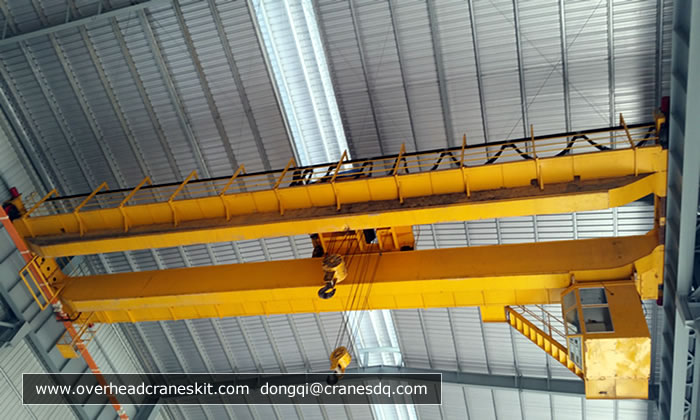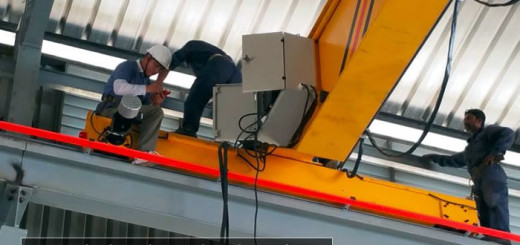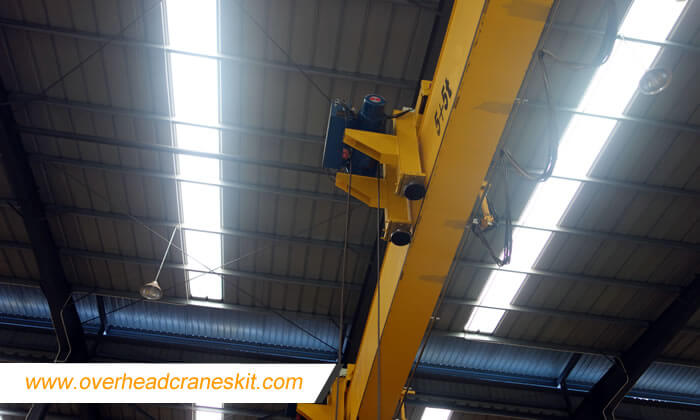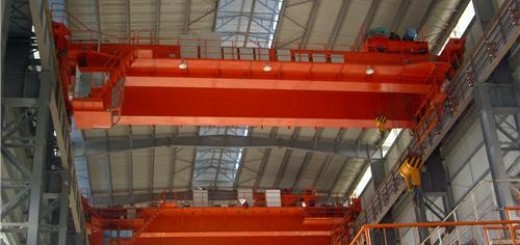Overhead crane wiki: Crane Daily Inspection & crane maintenance
Overhead cranes play an important role in the material handling in the workshop. It is used more and more frequently so overhead cranes Crane Daily Inspection and maintenance need to be paid attention. Now please look the below Dongqi crane Engineer’s advice for your reference.

Dongqi overhead crane in Pakistan
About the Crane Daily Inspection
While only designated personnel may perform required maintenance and repairs on overhead crane systems, the crane operator should conduct inspections on a daily basis before and after use.
Crane Daily Inspection
Crane daily inspection is to check the accessories and the system of the overhead cranes that if they are in a normal and safe situation before the start of each shift or every workday. The below parts examination should not be ignored:
- End carriage
- Slewing luffing expansion and lifting mechanism.
- Brake system of every mechanism
- Clutch (chassis)
- Operation system of the overhead cranes
- Safety device
Frequent Inspection
Frequent inspection means under the normal usage situation, according to the crane load and environment to confirm the inspection cycle but please noted that the cycle is at least one time per month.
Regular Inspection
Regular inspection means under the normal usage situation, according to the crane load and environment to confirm the inspection cycle but please noted that the cycle is at least one time per year.
Noted:
Rotary bearing installation bolt should be fastened again, during routine check every month, if found by the rotary installation bolt looseness, it should be in the pit to bolt fastening.
Checking the rotary bearing bolt if their fastening situation satisfy with the specified torque standard. The specified torque is 960 N.m.
About the Crane Maintenance
Maintenance to crane is what power to motor. Doing the better maintenance getting the better overhead cranes.
When do the crane maintenance the worker should use crane maintenance checklists that include critical safety components as specified by the manufacturer or professional engineer and follow the company requirements and the manufacturer’s manual.
Wire rope maintenance
Checking the wire rope by lower hoist to unload rope sheaves and unwind all wire rope from the hoist drum then inspect sheaves, sockets, dead ends, thimble joints and all wire rope hardware. And then establish a schedule of rope replacement to change wire rope before it breaks. Periodic replacements do not take the place of inspections. If rope breaks or inspections reveal abnormal wire breakage or defects, reduce the time between replacements. Do not make wire rope slings from used wire rope.
Control mechanisms and monitoring devices
Checking the control mechanisms, for example the cables brakes and levers for poor adjustment or excessive wear and checking mark in the accuracy of load/radius indicator and checking the correct operation of the load moment indicator, boom angle indicator, the length of the boom index and the two systems according to the manufacturer’s handbook.
Hydraulic systems
Checking for deterioration or leakage in air or hydraulic systems and checking for safe and effective operation on hoses, pumps and motors. And checking air cleaners for replacement or cleaning.
Crane Structure and accessories
Visually examine the crane structure for deformed, cracked or corroded members in the structure and boom.
- Check for loose bolts or rivets.
- Check for excessive wear on brake and clutch system parts.
- Check for deformed wedges.
- Check for defective cotter keys, pins and guardrails.
- Ensure all mechanical components of the crane is in good working order (gear box, hydraulics, etc.).
Crane maintenance and crane repair is very important in daily time, making the details well, the crane will be relatively prolonged life.
If you are not clear about it, please feel free contact our Dongqi Group and we will give you the professional guide and try our best to help you.




